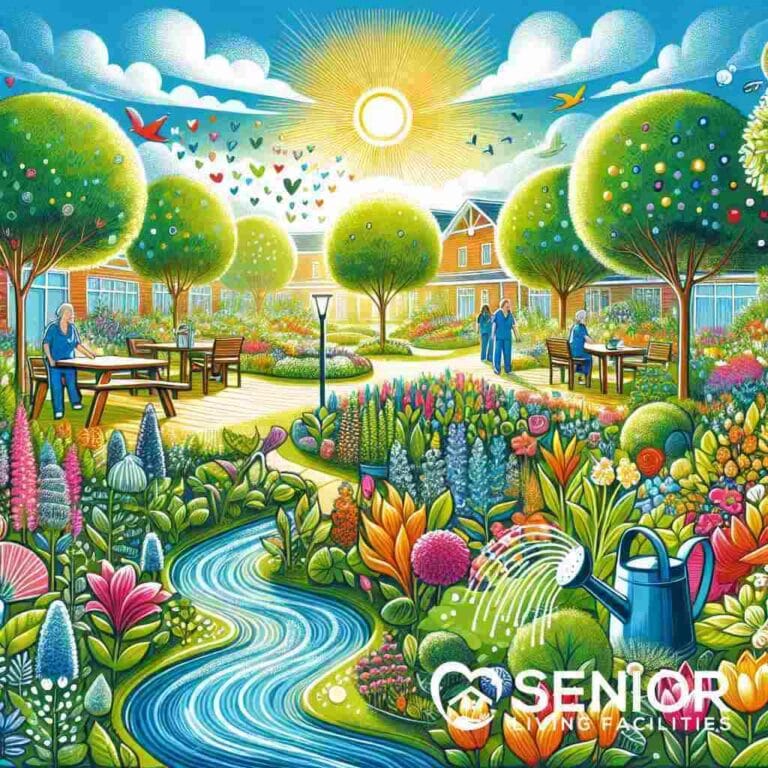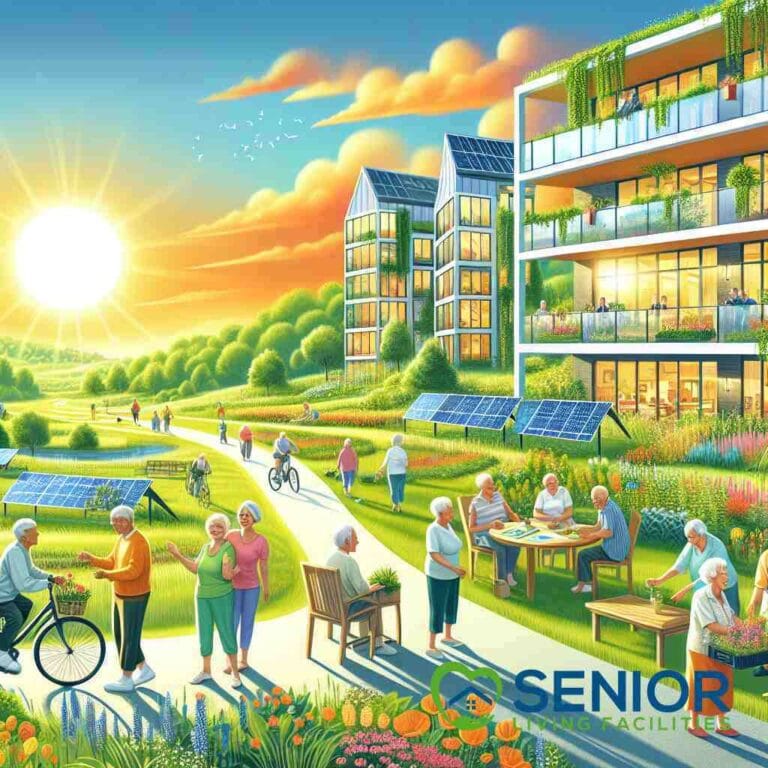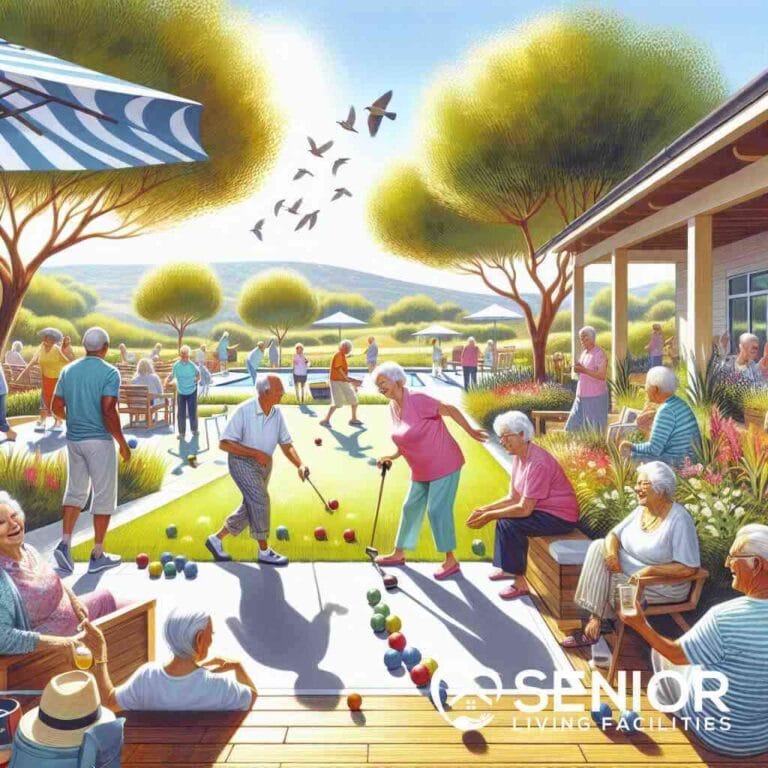Understanding Senior Wellness in Living Facilities Near You
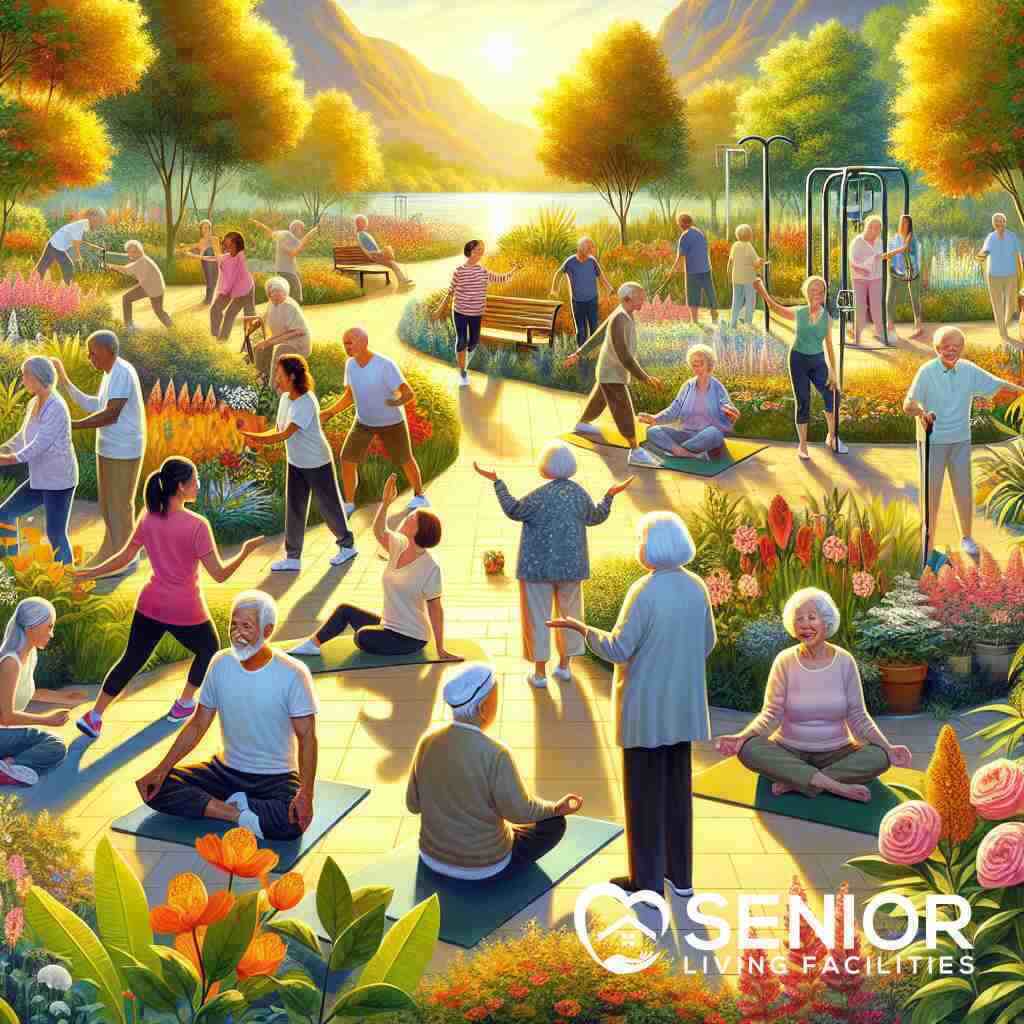
Unveiling the Essence of Senior Wellness
Defining Senior Wellness in the Modern Era
Senior wellness in today’s world transcends mere physical health to encompass a comprehensive approach that includes mental, emotional, and social aspects. It is about fostering environments that allow older adults to thrive in every aspect of life, ensuring they live with dignity and purpose. Modern senior living facilities recognize this and strive to cultivate an atmosphere that supports active participation and encourages independence. As we progress further into this phase of life, the focus on holistic health becomes imperative, supporting seniors as they continue to engage with life’s myriad challenges and opportunities.
Exploring the Components of Holistic Wellness for Seniors
Holistic wellness for seniors has become a cornerstone in crafting meaningful living experiences in senior communities. This approach integrates various facets of well-being, including physical health, mental acuity, emotional stability, and social connections. To achieve this, communities for seniors 55+ emphasize activities that nurture the mind, body, and spirit, thus promoting overall vitality. Holistic health for seniors is not just about being disease-free; it’s a commitment to lifelong enrichment. With this comprehensive mindset, senior living facilities tailor wellness initiatives that respect individuality and foster resilience amidst aging.
The Importance of Senior Wellness Programs in Assisted Living
Senior wellness programs in assisted living settings play a pivotal role in enhancing the quality of life for our elders. These programs are designed to address unique needs, emphasizing physical fitness, nutritional education, mental stimulation, and social interaction. Through structured activities and engagements, they help prevent isolation and promote a sense of community. These initiatives are central to not only maintaining health but also boosting morale and confidence among seniors. By integrating wellness programs into daily routines, assisted living facilities create a nurturing environment where seniors enjoy enriched lives full of purpose and joy.
Pathways to Comprehensive Geriatric Wellness
Strategic Approaches to Geriatric Wellness
Senior living facilities adopt strategic approaches to enhance geriatric wellness, focusing on personalized and community-oriented solutions. These strategies aim to address the unique health challenges that come with aging by incorporating advanced medical practices and holistic therapies. Residential elder care communities offer customized programs to maintain physical vitality, mental clarity, and emotional health. They prioritize creating ecosystems where seniors engage in activities that resonate with their personal interests and abilities. By fostering an environment of ongoing education and participation, these strategies empower seniors to take charge of their own health journeys.
Integrating a range of wellness services into daily life ensures that aging individuals receive comprehensive care. Facilities often implement technology to monitor health indicators, allowing for timely interventions and adjustments to personalized care plans. Health professionals collaborate with residents to refine goals and tailor services to individual needs. These strategic efforts not only aim for the longevity of residents but also enhance their quality of life, ensuring they thrive in every aspect of their senior years.
The Role of Personalized Senior Care Plans in Wellness
Personalized senior care plans are critical to optimizing health outcomes for the elderly. These tailored plans take into account a senior’s health history, current conditions, and personal preferences. By developing specific personalized senior care plans, facilities can offer more targeted support that addresses both physical and emotional needs. This individualized approach recognizes the diversity of aging experiences and accommodates varying levels of independence and autonomy.
Senior living facilities use multidisciplinary teams to design comprehensive care plans that encompass everything from medication management to day-to-day activities. This holistic approach ensures that all aspects of a senior’s health are monitored and addressed proactively. Constant communication between residents, their families, and healthcare providers is essential in adjusting these plans to reflect ongoing changes in health status or personal goals. Ultimately, personalized care enhances life quality by promoting agency and self-determination among seniors.
Integrating Cognitive Health and Emotional Well-being
Cognitive health is a fundamental aspect of senior wellness and requires intentional strategies to maintain and enhance mental acuity. Cognitive health strategies focus on engaging activities that stimulate the mind, such as puzzles, discussions, and classes that challenge and expand mental faculties. These activities are vital in preserving cognitive functions and delaying the progression of conditions like dementia. Emphasis on cognitive health aims to empower seniors by sustaining independence and facilitating active participation in community life.
Emotional well-being, on the other hand, is integral to a senior’s overall health. Positive emotions and mental states contribute significantly to physical health; thus, addressing emotional well-being in elders becomes imperative. Assisted living facilities dedicate resources to ensuring that seniors have access to emotional support, whether through therapy sessions, social gatherings, or companion programs. Holistic care plans incorporate both cognitive health strategies and support systems that enhance emotional resilience, allowing seniors to live fully and joyously. Improving emotional and cognitive health opens doors to a more full-bodied experience of aging, nurtured by consistent support and engagement within senior living communities.
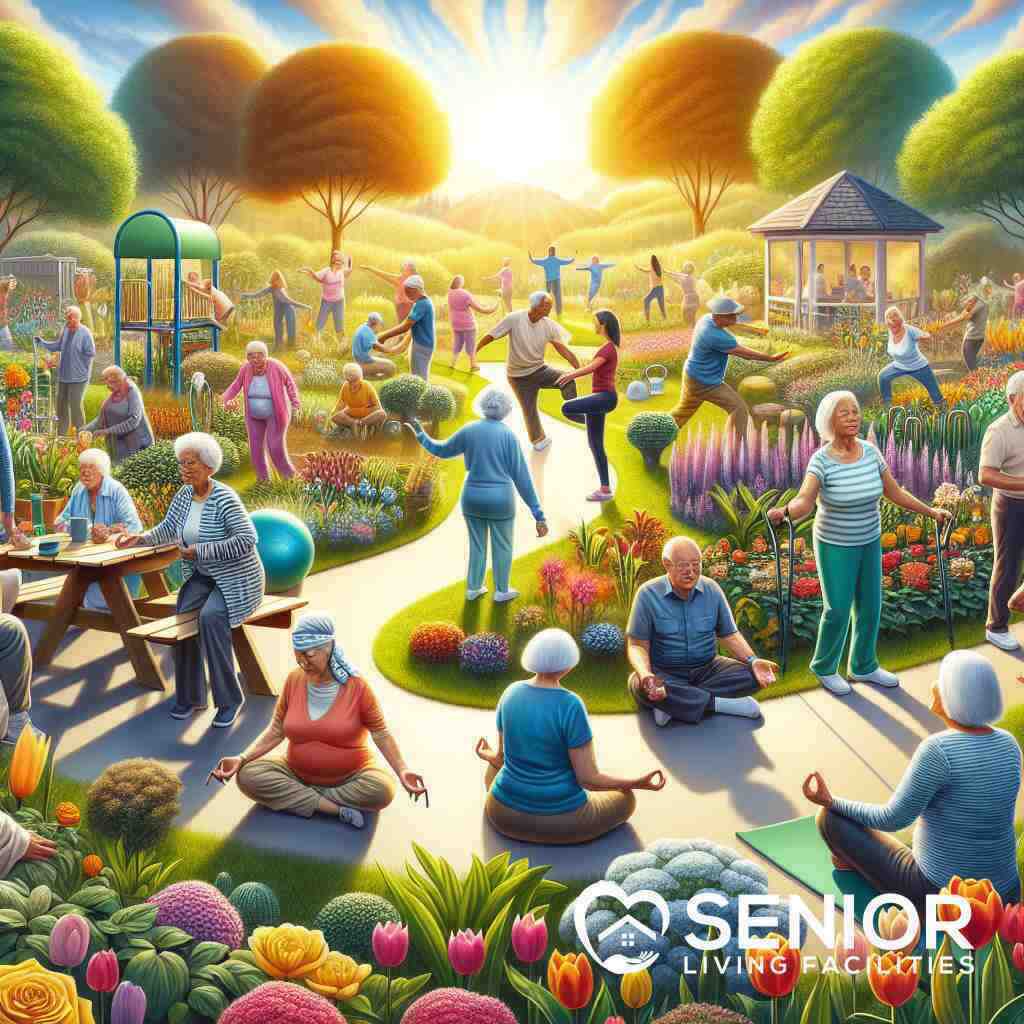
Nutritional and Physical Pillars of Aging Gracefully
Optimizing Nutrition for Aging Adults
Nutrition for aging adults is a fundamental aspect of maintaining vitality and health. As we age, our bodies require different nutrients to sustain energy levels and support immune function. Senior living facilities recognize this need and provide tailored meal plans that emphasize a balanced diet rich in essential vitamins and minerals. These plans focus on optimizing health and mitigating age-related diseases through proper nutrition. The curated meals include adequate fiber, proteins, and healthy fats while reducing sodium and sugar intake.
Culinary services in these communities often collaborate with nutritionists to ensure meals are both nutritious and delicious, appealing to diverse palates. Providing access to nutrition education and counseling allows seniors to make informed dietary choices. For a deeper dive into how nutrition plays a pivotal role in senior wellness plans, explore how facilities in Florida are leading the charge on nutrition for aging adults. This holistic approach underscores the critical role of food in enhancing the quality of life and prolonging independence among the elderly.
Senior Fitness Programs: Leading the Way to Active Aging
Physical activity is another cornerstone of wellness for seniors, facilitated by comprehensive fitness programs that cater to this demographic. Senior living facilities offer diverse exercise options that promote active aging, ranging from yoga and tai chi to strength training and aquatic exercises. These fitness programs for seniors are designed to enhance flexibility, balance, and cardiovascular health, reducing the risk of falls and promoting longevity.
Classes are often tailored to different fitness levels, ensuring inclusivity and safety. Trained professionals guide seniors through routines that gradually build strength and endurance. The social aspect of group exercises also fosters camaraderie among participants, which is essential in maintaining motivation and regularity. As seniors engage in consistent physical activity, they enjoy increased energy, improved mood, and an enriched sense of community belonging.
Addressing Mobility Solutions and Rehabilitation Services
For aging individuals, mobility challenges can impact independence and overall well-being. Senior living facilities address this by offering specialized programs and resources aimed at enhancing mobility and providing rehabilitation services. Customized mobility solutions focus on adapting environments to be more accessible and providing equipment like walkers or scooters for ease of movement. Senior mobility solutions are crucial in retaining autonomy and promoting active lifestyle choices.
Rehabilitation services are essential for seniors recovering from surgeries or managing chronic conditions such as arthritis. These services include physical therapy sessions that are tailored to individual needs, aiming to restore functionality and improve the quality of life. Facilities employ skilled therapists who work closely with residents to develop personalized recovery plans, facilitating quicker and more effective recuperation. By prioritizing mobility and rehabilitation, senior living communities ensure residents can navigate their environment comfortably and live more active, fulfilling lives.
Social and Emotional Dimensions of Eldercare
Enhancing Social Engagement in Senior Communities
Social engagement is a critical factor in the well-being of seniors living in community-based settings. Fostering strong social ties can significantly enhance the quality of life, offering emotional support and reducing feelings of loneliness. Senior living facilities near you actively create opportunities for social interaction through organized events, clubs, and communal spaces that encourage residents to connect and share experiences. Effective social engagement strategies are essential in helping seniors build meaningful relationships and participate actively in community life. By focusing on social connections, these facilities create an environment where residents can lead vibrant and purposeful lives.
Social activities and events are tailored to the interests and abilities of the resident population, ensuring inclusivity and maximum participation. Regularly scheduled gatherings, music sessions, and hobby groups are just a few examples of how communities keep seniors socially active. Engaging residents in leadership roles within these groups can further enhance their sense of belonging and autonomy.
Mental Health Support and Emotional Resilience
Promoting mental health and emotional resilience in senior communities requires a dedicated approach. Senior living facilities integrate mental health support through access to counseling, therapy, and stress management programs. These services are designed to help residents navigate emotional challenges and adapt to changes that come with aging. Facilities focus on maintaining residents’ emotional well-being by offering supportive networks, peer groups, and professional psychological services.
Recognizing signs of stress, anxiety, or depression is vital in addressing mental health concerns promptly. Senior living communities emphasize training staff to identify these issues and provide initial support before referring residents to mental health professionals. Building emotional resilience among seniors is achieved through engaging activities that foster a sense of purpose and accomplishment. Continual mental health education and resources are offered to create a supportive and nurturing environment for every resident.
Therapeutic and Recreational Activities for Enrichment
Therapeutic and recreational activities play a pivotal role in enriching the lives of senior community residents. These activities are designed to stimulate physical, mental, and emotional health, providing multiple avenues for personal expression and engagement. By offering a diverse array of recreational programs, senior living facilities support overall wellness and life satisfaction.
From art and music therapy to gardening and dance, these activities cater to a variety of interests and abilities. They not only improve cognitive and physical capabilities but also facilitate social interactions among residents. As part of a strategic approach to eldercare, facilities aim to keep seniors physically active and mentally stimulated. Participation in these activities can be transformative, offering residents a sense of achievement and communal connection. Discover the benefits of senior recreation activities that enrich lives by providing fulfillment and joy in daily life.
Preventive and Proactive Health Measures
Eldercare Health Assessments and Chronic Disease Management
Eldercare health assessments are foundational to effectively managing chronic diseases in senior living communities. They involve a comprehensive evaluation of an individual’s health status, including physical exams, psychosocial assessments, and routine screenings for common age-related ailments. These assessments aim to detect potential health issues early, enabling timely interventions. By closely monitoring health indicators, senior facilities can develop individualized care plans that encompass medication management and lifestyle modifications. Chronic disease management is a crucial aspect, focusing on conditions such as diabetes, hypertension, and arthritis. Through regular check-ups and coordinated care, facilities strive to maintain seniors’ independence and improve overall life quality. Residents actively participate in their health management, ensuring they are informed and empowered partners in their care journey.
Proactive Preventive Care in Senior Facilities
Proactive preventive care is an essential component of supporting healthy aging in senior communities. It emphasizes the importance of early intervention strategies to avoid the progression of diseases, focusing on maintaining health rather than just treating illness. Preventive care measures include routine vaccinations, health screenings, and education on healthy lifestyle choices, all of which are integrated into daily life in senior living facilities. This approach not only reduces healthcare costs but also enhances residents’ well-being by minimizing hospital admissions and improving functional capacity. Facilities utilize wellness coaching and detailed care plans tailored to the unique needs of each senior. By facilitating access to preventive resources, senior communities empower residents to take a proactive role in managing their health, reinforcing a holistic view of wellness.
End-of-Life Care Considerations and Quality of Life
End-of-life care is an important aspect of eldercare that focuses on providing comfort, dignity, and a high quality of life for individuals nearing the end of their journey. It involves a compassionate approach that includes managing physical symptoms, offering emotional support, and ensuring that the individual’s preferences are honored. Senior living facilities work closely with families and healthcare providers to create personalized care plans that respect the wishes and needs of each resident. Effective communication and proactive planning are integral to delivering exceptional end-of-life care, fostering a peaceful transition. This stage of care not only addresses the physical ailments but also encompasses spiritual and emotional needs, providing comprehensive support.
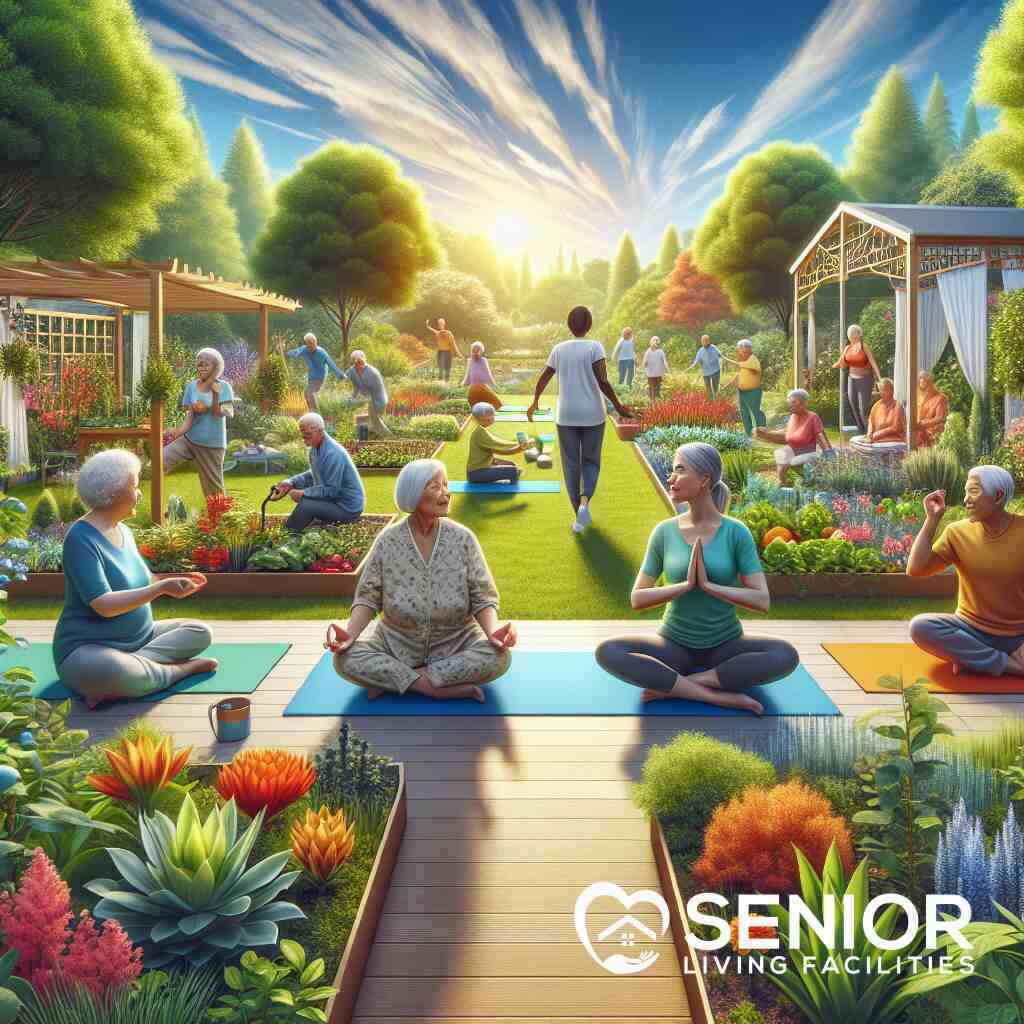
Concluding Thoughts on Lifelong Wellness in Senior Housing
Summarizing the Journey of Aging Gracefully
Aging gracefully is a multifaceted journey that encompasses a broad spectrum of care, tailored experiences, and community engagement. Senior living facilities play a pivotal role in enhancing this journey by providing environments that nurture holistic wellness. From personalized care plans to engaging social activities, these communities are designed to uphold dignity and vitality. By focusing on senior wellness programs, residents can maintain autonomy and participate actively in community life. The commitment to fostering a high quality of life ensures that seniors can embrace aging with confidence and joy, supported by comprehensive health and lifestyle services.
Empowering Seniors to Embrace Holistic Wellness
Empowerment in senior wellness is about providing the tools and opportunities for older adults to take charge of their health and well-being. Senior living facilities offer a blend of healthcare, recreational activities, and social interactions that cater to different aspects of wellness. Embracing a holistic approach means addressing physical, emotional, and cognitive needs, enabling seniors to thrive in various aspects of life. By integrating cognitive health strategies, facilities not only preserve mental acuity but also enhance life satisfaction. This empowerment journey involves continuous encouragement and support, ensuring every senior feels valued and capable of making positive health choices.
The Future of Quality Living in Senior Communities
The future of senior communities is bright, with innovative approaches in eldercare transforming how we perceive and experience aging. As technology and healthcare advance, so too does the ability of senior living facilities to offer more personalized and efficient care services. Communities are increasingly adopting preventive care measures, aiming to prevent health issues before they occur, thus enhancing seniors’ quality of life. Reinforced by a commitment to continuous improvement, these communities ensure that every resident finds a sense of belonging and purpose. The evolution of senior housing is geared toward creating environments where individuals can age gracefully, paving the way for a fulfilling and joyful later life.
Frequently Asked Questions
Question: How do senior living facilities incorporate holistic wellness for seniors?
Answer: Senior living facilities recognize the importance of a comprehensive approach to senior wellness that encompasses physical, mental, emotional, and social aspects. They incorporate holistic wellness for seniors by offering tailored senior wellness programs that promote physical health through fitness activities like yoga and tai chi, cognitive health through mentally stimulating classes and discussions, and emotional well-being via support groups and social engagement events. These facilities are dedicated to creating an enriching environment that fosters holistic growth and enhances the quality of life for all seniors.
Question: How do personalized senior care plans improve the quality of life for seniors?
Answer: Personalized senior care plans play a crucial role in optimizing seniors’ health outcomes by taking into account individual health histories, current health conditions, and personal preferences. Senior living facilities use these tailored plans to address both physical and emotional needs, employing a multidisciplinary team to ensure comprehensive care. These plans promote agencies and empowerment among seniors, allowing for regular adjustments based on ongoing health assessments. By focusing on personalized care, seniors experience a significant improvement in their quality of life, enjoying more autonomy and self-determination.
Question: What components make up nutrition for aging adults in senior living communities?
Answer: Nutrition for aging adults is a vital component of maintaining health and vitality in senior living communities. Facilities prioritize this by providing balanced meal plans that are rich in essential vitamins, minerals, fiber, proteins, and healthy fats while reducing sodium and sugar intake. By collaborating with nutritionists, the culinary services ensure that meals are both nutritious and appealing to diverse palates, supporting health and mitigating age-related diseases. Additionally, nutrition education empowers seniors to make informed dietary choices, reinforcing their overall health and well-being.
Question: How do senior living facilities support emotional well-being in seniors?
Answer: Senior living facilities support emotional well-being in seniors through various strategic approaches. They offer access to mental health support via counseling, therapy sessions, and stress management programs tailored for seniors. To promote emotional resilience, these communities provide supportive networks through social gatherings and peer groups, ensuring residents have the emotional support necessary to navigate life’s challenges. Furthermore, staff are trained to recognize signs of mental health issues such as stress or depression, providing initial support and facilitating professional help as needed to ensure residents’ emotional well-being.
Question: What role do senior fitness programs play in aging gracefully?
Answer: Senior fitness programs are integral to the concept of aging gracefully, as they help seniors maintain physical activity levels essential for overall wellness. Senior living facilities offer diverse exercise options, including yoga, tai chi, strength training, and aquatic exercises, designed to enhance flexibility, balance, and cardiovascular health. These programs reduce the risk of falls and promote longevity while also providing social interaction opportunities that help combat loneliness. By engaging in regular physical activity, seniors enjoy increased energy, improved mood, and a stronger sense of community belonging.
Admin
Expert contributor specializing in senior living care. Dedicated to providing families with clear, actionable advice.

